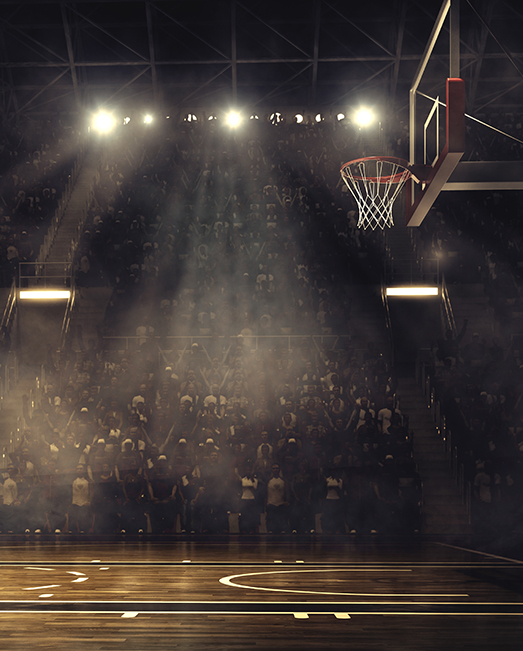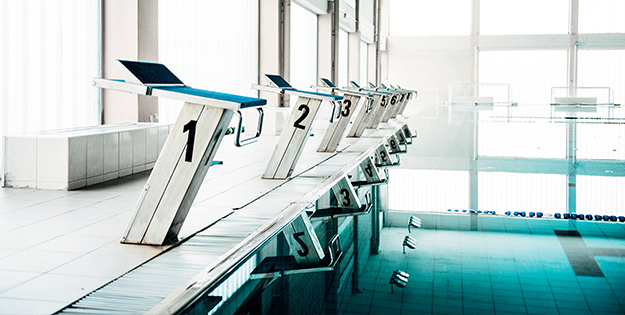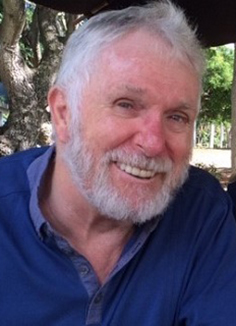Lifestyle
Copyright@ Australian Catholic University 1998-2026 | ABN 15 050 192 660 CRICOS registered provider: 00004G | PRV12008
Copyright@ Australian Catholic University 1998-2026 | ABN 15 050 192 660 CRICOS registered provider: 00004G | PRV12008

In a sports mad country like Australia, the celebrity and esteem that
comes with elite sporting success can make athletes feel on top of the
world. But what becomes of our sporting heroes when the stadium lights
are dimmed?
Last February, the rugby world was stunned by the news that former Wallaby Dan Vickerman took his own life at the age of 39. The rugby great, who had battled depression, often confided in friends of the difficulties he faced in retirement.
“When you’re an athlete in the spotlight and in the bubble, everything — the highs and the lows — is magnified and intensified, and so when they retire, many sportspeople experience sheer shock and a deep sense of bereavement,” said Associate Professor John Saunders, the national coordinator of ACU’s Elite Athlete Program.
In recent years, more and more athletes have spoken out about their struggles to adapt to life after hanging up the boots.
Former Opals captain Lauren Jackson, one of Australia’s greatest-ever basketballers, felt like she was “put out to pasture” after her forced retirement due to injury.

Champion cricketer Nathan Bracken struggled with joblessness and said he “felt a failure” when he couldn’t score a job at a supermarket.
Others have found it hard to throw off the shackles of their sporting careers.
"All of a sudden, you're standing in a room full of strangers … your new work friends,” said former Wallaby Brendan Cannon.
"They’re wanting to talk to you about what you used to be, and all you want to focus on is what you want to become."
Once upon a time, athletes had day jobs that they did alongside their sporting careers. First-grade rugby league players slogged it out on the paddock on Sunday afternoon, only to clock on for work the next morning as labourers and tradesmen.
The widespread professionalisation of sport means many athletes no longer need day jobs. But does this potentially leave athletes more prone to joblessness post-career?
“That’s undoubtedly the case,” Associate Professor Saunders said.
“Professionalism has changed the whole nature of sport, and while there are positive aspects, in that most athletes can now focus on their sport full-time, there are also negatives, because in some cases there's no opportunity for them to pursue other aspects of life, including training for a vocation they can do after sport.
“And when you get people as young as 14 who are put into talent squads with professional sporting teams, it's understandable that they become consumed by their sport, often at the expense of other aspects of life.”

Elite athletes who experience early success in their chosen endeavour also tend to also have fewer opportunities to explore alternative aspects of their identity.
This can lead to “identity foreclosure”, the act of committing to an identity prematurely, without proper exploration or choice.
“As we develop, we all find ourselves in multiple roles — as scholars at learning institutions, for example, or as sportsmen and women out on the sports field, as members of our family and social group — and all of these aspects become part of our overall identity,” Saunders said.
“But when one identity takes over and consumes us without allowing the other identities to be developed and explored, that’s where the word ‘foreclosure’ comes into play as a useful way of describing how we shut ourselves off.”
The result is that athletes rely excessively on their identities as sportspeople, which can sometimes lead to an intense sense of loss when their sports career ends.
“Imagine something that’s so much a part of your life and your identity, something you’ve pursued with such intensity for years, is just taken away from you, and all of a sudden it’s like you’ve got no purpose and you’ve got to start your life all over again,” Saunders said.
“It’s a very tough thing to deal with, even for the most balanced of individuals, and that’s why it can lead to all sorts of problems, including depression.”
Sport was once seen as something that could improve an individual’s defences against mental illness, the theory being that they'd learn the lessons of life on the sporting field and apply them elsewhere in life.
However, a recent Australian study of 224 retired athletes found that one in four suffered from depression, which roughly corresponds with the level of depression in the general population.
“The theory that competitive sport shields athletes from the symptoms of mental illness has been turned upside-down,” Saunders said.
“This has happened in association with the professionalisation of modern sport and the development of intense athlete development systems, which have as their primary goal the development of podium athletes. Today sportspeople can be some of the first to suffer the mental illnesses that so many in the general population are suffering as well.”
Dan Vickerman’s death shone a light on the need for athletes to prepare for the transition from sports star to regular person.
But while there are dozens of programs that seek to assist retiring athletes, Saunders believes many of them have shortcomings.
“The problem with many of the programs is that they concentrate solely on the transition into retirement. They’ve got a remedial mindset: here's a problem, let's put a patch on it and fix it,” he said.
“In my view the responsibility for making sure athletes are able to develop multiple identities starts at the very beginning and should be carried all the way through their careers, because it's a continuous educative process of helping them to achieve work-life harmony.”
Forty-one universities across Australia have combined with the Australian Institute of Sport to form the Elite Athlete Friendly Universities network, which has “done some great groundwork”, Saunders said.
“I think it shows the way forward and promotes the importance of helping the athlete to develop as a person while they are pursuing excellence on the sporting arena,” he said. “Waiting until the athlete is about to retire is often too late.”
John Saunders is Associate Professor in Exercise Science and Sport Management at ACU. He is the Editor-in-Chief of International Sports Studies, the Journal of the International Society for Comparative Physical Education and Sport.
Interested in exploring sport and exercise science at ACU? See what we do.

Copyright@ Australian Catholic University 1998-2026 | ABN 15 050 192 660 CRICOS registered provider: 00004G | PRV12008